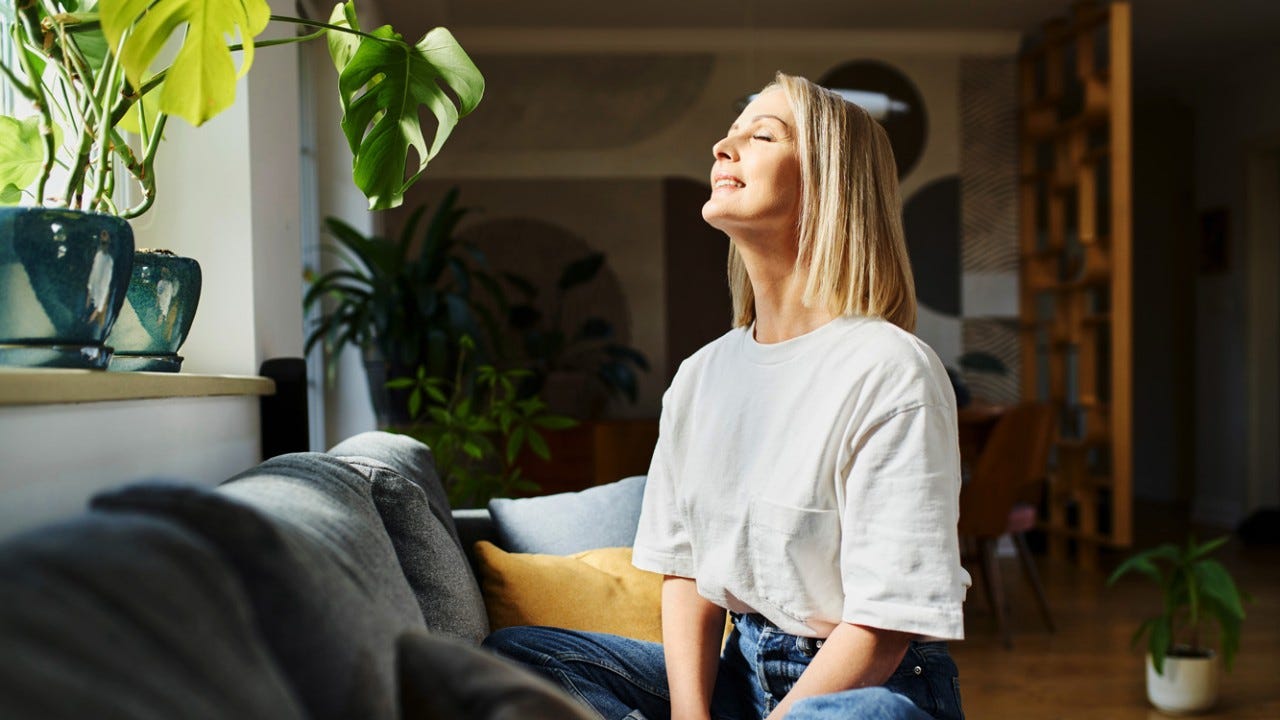Holistic health: more than wellness
Holistic health is more than just another trend that promotes bath additives or smoothies. The holistic approach helps you to become healthier and happier.

Holistic health considers multidimensional aspects of wellness. The focus is on the entire person, not just a single ailment. That means, to stay or become healthy, it’s not enough to focus exclusively on physical complaints. Mental, emotional and social aspects also have to be taken into account. Naturopathic practices have followed the concept of holistic medicine for thousands of years.
Lara Huber, natural health practitioner and owner of the Venti health practice in Zurich, explains: “Holistic means that we get to the root of the problem instead of just treating the symptoms with medicines.” Many things can impact our health and throw our digestion or hormonal balance off track – for example, if we’re stressed, have a poor diet or sleep badly.
The main pillars of holistic health are exercise, diet, recovery and sleep. “Exercise activates important metabolic processes, improves lymphatic drainage and reduces the stress hormone cortisol,” explains Huber. However, this does not require a competition-driven peak performance. The primary focus is on recovery and self-care.
“Many people imagine a healthy lifestyle to be easier than it actually is.”
Relaxation is the key
Relaxation plays an important role in holistic health, because the body can only fully regenerate when it’s at rest. And certain processes, such as digestion, don’t work properly when they’re under stress. However, in today’s world, real relaxation is more of a luxury than a daily occurrence. “Many people have forgotten how to relax,” says Huber. Sitting in front of the TV or scrolling on your smartphone every night don’t count. “These activities are merely distractions – your brain is still active.”
Holistic health sounds like wellness and, according to the German Zukunftsinstitut, health is indeed a megatrend. But Huber puts it into perspective: “Although people want to live healthily, many imagine holistic health to be simpler than it is. They often hope for a product that will solve everything." However, holistic health has a lot to do with personal responsibility and, according to Huber, it is not possible without lifestyle amendments. This can be a time-consuming and uncomfortable process in the beginning.”
“Each of us faces different challenges, so we need to take an individual approach.”
What is a holistic diet?
What we eat affects our health. But what nutrition concept is right for me? Should I go low carb or gluten free or try interval fasting? “Above all, a holistic diet should be as varied as possible and contain all the macro and micro nutrients you need,” explains Lara Huber. For her patients, this usually means consuming a lot more vegetables and pulses than they’re used to. On the other hand, white flour, animal fats and sugar often have to be reduced. However, there’s no one-size-fits-all strategy for holistic health. “Each of us faces different challenges, so we need to take an individual approach if we want to improve.” Huber also points out that a healthy diet won’t really do any good if the intestinal mucosa is affected or digestion doesn’t work properly.
Last but not least, it’s about listening to your body instead of blindly following a plan. When have I eaten enough? Am I enjoying the salad I’m having for dinner? Am I eating because I’m hungry, or because I’m frustrated, happy or bored? Huber warns about the risk of interpreting signals incorrectly. For example, if you never eat pulses or other fibre-rich foods, you’ll experience bloating at the beginning. But your digestive system will get used to it after a while. Huber says it’s a good idea to listen to your body, but many people first have to learn what healthy eating involves.
Holistic medicine
Holistic medicine is becoming increasingly popular, particularly in combination with conventional medicine, as demonstrated by the introduction of integrative therapy options in many hospitals. Integrative medicine combines conventional and complementary approaches. Huber also firmly believes that conventional medicine and naturopathy are mutually beneficial. “In my view, conventional medicine and naturopathy go hand in hand. Conventional medicine is indispensable for treating serious illnesses, but naturopathy can provide support.”
Naturopathy can also have a positive effect on patients by appealing to their sense of responsibility. After all, prevention is also a crucial factor in holistic medicine. Those who act quickly to look after different aspects of their overall well-being are less likely to fall ill. “As a naturopathic practitioner, I want to make people aware that they need to take action early on, not just when they feel really sick.” The best prevention? A varied diet, daily exercise, plenty of relaxation and social contact. This creates a healthy balance for your body, mind and emotions.
When optimising your health becomes an obsession
Despite the benefits of a holistic approach to health, some are critical of the trend because it’s easy to go too far in trying to optimise your health. There’s always more you can do – cook healthily, look after yourself, exercise and tone, mediate, heal and, of course, make time for recovery. All this leaves no time for enjoyment, doing nothing, weakness or imperfection. Being healthy becomes an obsession. And can even be unhealthy. Orthorexia describes compulsive eating behaviour in which sufferers might feel extremely anxious or guilty if they eat food they feel is unhealthy.
Resourceful entrepreneurs have long since seen picked up on the trend and have fired up the marketing machines, offering holistic fitness and wellness programmes, powders and capsules, expensive creams and bath additives. But holistic health and self-care has nothing to do with self-optimisation and the pursuit of beauty ideals. It’s simply about being healthy in order to feel good. Huber warns about the risk of becoming obsessed: “Ultimately, it’s about being mindful of our health and striking a balance between enjoying life’s pleasures and living a healthy lifestyle.”



